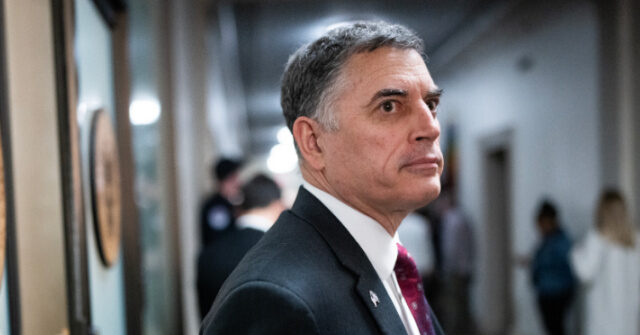Rep. Andrew Clyde (R-GA) is advocating for the repeal of the Impoundment Control Act, arguing that such a move would empower the President of the United States to effectively manage federal spending. In a recent discussion on Breitbart News Daily, he emphasized the significance of this repeal amid current discussions regarding the Department of Government Efficiency’s (DOGE) plans to recommend spending cuts. Clyde’s vision for impoundment reflects an effort to streamline spending by allowing the President to retain excess funds rather than being required to spend the full amount allocated by Congress for certain programs. He articulates that if the President can execute a federal initiative for less than the allocated budget, he should be permitted to do so, thus saving taxpayer money.
Clyde elaborated on the concept of impoundment by likening it to an impound yard where a car is temporarily held. Here, he metaphorically suggests that the government can ‘impound’ or withhold spending on specific line items in the federal budget. This approach, he contends, would facilitate increased government efficiency by reducing unnecessary expenditures. Drawing on an example, he mentioned if Congress appropriates $10 million for a program but the President can achieve the same goals for $7 million, it would be prudent for the President to only spend the lesser amount. This shift towards a more efficient use of funds reflects Clyde’s larger goal of establishing spending ceilings rather than floors.
One of the significant changes Clyde advocates for is a fundamental shift away from the current stipulations of the 1974 Impoundment Control Act, which mandates that the President must spend the money appropriated by Congress. He explained that while this legislation was rooted in concerns about the President potentially withholding funds from specific programs, its rigid framework has hampered fiscal responsibility. Clyde argues that the purpose of impoundment should not be to prevent the execution of necessary programs but rather to encourage the government to operate within its means while still adhering to its legislative mandates. The focus should be on meeting program goals without overspending.
Critics of Clyde’s proposed repeal might raise concerns about the balance of power between Congress and the Presidency, especially regarding funding decisions. However, Clyde reassured listeners that repealing the Act would not equate to relinquishing Congress’s power of the purse. He maintained that while the power to allocate funds rests with Congress, allowing the Executive branch to manage appropriated funds more efficiently could lead to substantial savings. The unused funds, according to Clyde, would be returned to the treasury, potentially aiding in debt reduction and contributing positively to the country’s financial health.
With plans to reintroduce this measure in the next Congress, Clyde expressed an optimistic outlook, anticipating support from multiple cosponsors. He emphasized that he intends to present this bill during the first week of the upcoming session in January. His urgency and commitment to this cause reflect Clyde’s belief that it is essential for the federal government to regain control over spending, which he characterized as currently being “wild.” This proposed legislation aims to recalibrate the approach to federal budgets and spending, striving for enhanced accountability and efficiency in the use of taxpayer dollars.
In conclusion, Rep. Clyde’s advocacy for the repeal of the Impoundment Control Act is rooted in a desire to empower the President to manage funds more effectively, potentially allowing for significant savings in federal spending. Through the proposed changes, Clyde aims to promote fiscal responsibility while ensuring that the government’s obligations are met without overspending. His proposal seeks to redefine the dynamics between Congress and the Executive branch regarding budgetary allocations, promoting efficiency and accountability within the federal spending framework. As discussions progress in the new Congress, the viability and acceptance of this bill will reveal the extent to which there is bipartisan support for a shift toward a more dynamic approach to managing federal expenditures.

